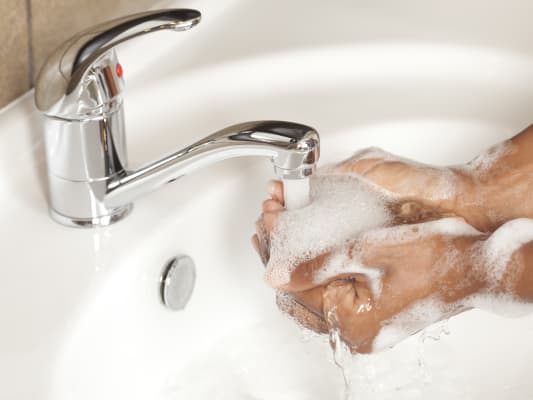What to Do When the Doctor Says Stay Home

While there is still much to learn about COVID-19, the illness caused by the coronavirus, we do know it is contagious. Symptoms may include a fever, cough, and shortness of breath, and it is spread through close contact with infected individuals in the same way the seasonal flu spreads each year.
If you do get sick, or if you are exposed to the coronavirus, it is very important to take steps to minimize the spread of the disease.
Before deciding to go to an urgent care center or an emergency department, you should first call your medical provider. They will be able to help you determine the most appropriate next steps, which may include simply staying home until you feel better.
To date, most people recover from COVID-19 without medical treatment. When you have mild symptoms, testing for the virus will not change the course of the disease, but it may inadvertently expose other people, including health care workers.
According to the Centers for Disease Control and Prevention, those who have, or who are suspected to have, COVID-19 should remain isolated in their homes until the risk of spreading the virus is thought to be low, and that decision will be made by either health care providers or state and local health departments.
If You are Sick
If your health care provider says you can be cared for at home, but must remain isolated, you should:
- Stay home unless you are getting medical care.
- Call your doctor’s office before visiting a doctor’s office or an emergency department to tell them you have, or may have the COVID-19.
- Separate yourself from other people in your house and your animals.
- Wear a face mask when you are around other people.
- Cover your coughs and sneezes!
- Frequently wash your hands for 20 seconds with soap and water.
- Opt not to share personal items, such as dishes, drinking glasses, eating utensils, towels or bedding. When you use an item, rinse it thoroughly with soap and water.
- Clean surfaces that are touched often, such as counters, phones, toilets and bathroom fixtures, and keyboards, throughout the day with a cleaning spray or wipe.
- Monitor your symptoms, and seek prompt medical attention if your illness gets worse. Be sure to call before you go to a medical facility and wear a face mask when you enter a building. If you need to call 911, you should tell the dispatcher you have or may have COVID-19. If possible, put a face mask on before they arrive.
If You are the Household Member or Caregiver
What should you do if you live with, or are a caregiver for, someone who has or may have COVID-19? The following steps can be taken to help your loved one while also reducing your risk and protecting the community:
- Understand how to best help your loved one and encourage them to follow medical advice.
- Monitor your loved one’s symptoms, and be sure to seek prompt medical help if needed.
- Stay away from individuals who are quarantined because of the coronavirus. Stay in separate bedrooms and bathrooms if possible.
- Restrict visitors to only those who need to be in the home.
- Take care of any pets if you are not the person who is sick.
- Ensure that shared spaces in a home have good airflow, such as an air conditioner or open window.
- Wash your hands frequently with soap and water for 20 seconds, and avoid touching your eyes, nose and mouth with unwashed hands.
- Wear a face mask when you are in the same room as an individual with COVID-19 or possible COVID-19. Put on gloves if you need to touch their blood, stool or any bodily fluids, and use disposable face masks and gloves only once. Throw them away in a lined container after single use.
- Don’t share household items with your loved one.
- Clean those well-touched surfaces thoroughly.
- Wash laundry thoroughly.
Bottom Line
Keeping our community healthy is a team effort. Everyone plays a role, and it is important that we take steps to minimize the spread of the coronavirus. Making a difference starts at home!
More Stories
Tips From The Mayer Center
In recognition of Autism Acceptance Month, Middlesex Health's The Mayer Center shares tips for parents of children who may be on the autism spectrum.
The Benefits of Acupuncture
Acupuncture, a form of integrative medicine, can ease pain and help with stress management. Acupuncture can also help if you are dealing with long COVID!